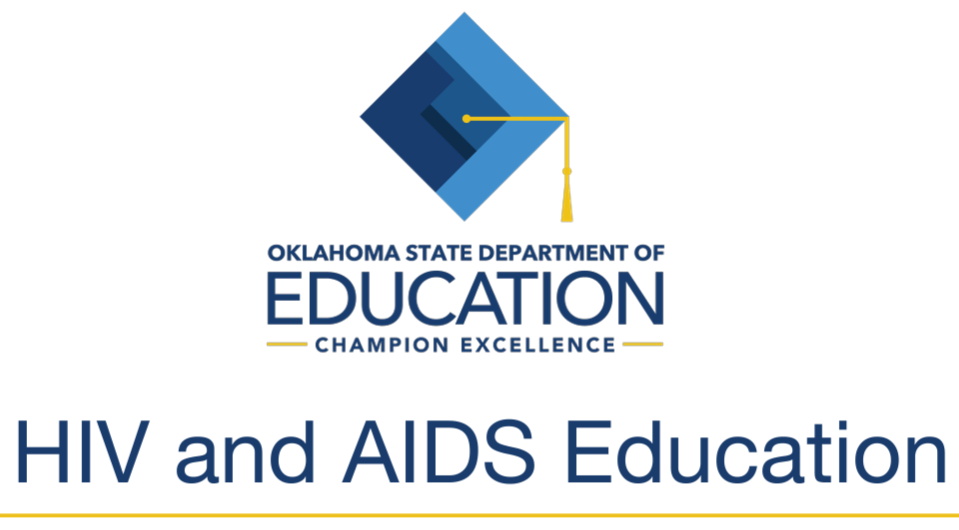- Stillwater Public Schools
- Health Services
Health Services
-
Elementary: 405.533.6417 Secondary: 405.707.5196
About Health Services
-
Welcome to the SPS Health Services web page. Student health and safety are top concerns at Stillwater Public Schools. For your convenience, we have provided forms and links that will provide answers to many of your questions.
Health Plans: If you have a student who has asthma, seizures, an Epi-Pen, Type 1 Diabetes, or any other health condition that requires an individualized health plan at school, please contact either the elementary or secondary school nurse to schedule a meeting. If a student has emergency medication of any kind, a health plan is required.
Medication: For the safety of students, it is recommended that medication be given at home when possible. For example, medication given three times a day can be given before school, after school, and at bedtime. If medication must be given during school hours, a medication authorization form must be completed. Medication authorization forms are available at each school site.
- Prescription Medication: The medication authorization form must be filled out by the parent/guardian AND the physician. Prescription medication must be in the original container with a non-expired prescription label that matches the medication authorization form.
- Over-The-Counter Medication: The medication authorization form must be signed and completed by the parent/guardian. Medication must be brought to the school in a new, unopened container.
Vaccinations: For school enrollment, a parent or guardian shall provide one of the following:
Vaccines
-
In accordance with state law, students are expected to be up-to-date on all required vaccinations. More information can be found at: https://oklahoma.gov/health/services/personal-health/immunizations/imm-shot-records.html
Additionally, the CDC recommends everyone 12 years and older should get a COVID-19 vaccination to help protect against COVID-19. Learn more at https://www.cdc.gov/coronavirus/2019-ncov/vaccines/stay-up-to-date.html
SPS Nurses
-
Amy Spiva, BSN, RN
Elementary School Nurse
1402 E Sunrise Ave
Stillwater OK 74075 (map)
Main: 405.533.6417
Cell: 405.747.1615
Fax: 405.533.3174
aspiva@stillwaterschools.com
-

David Coates, MS, RN
Secondary School Nurse
1224 N Husband St
Stillwater OK 74074 (map)
Main: 405.707.5177
Cell: 405.714.3174
Fax: 405.533.3169
dcoates@stillwaterschools.com
Medications
-
Students will on occasion need to take medications at school. Medication will be given only as authorized according to state law and district policy, regulations, guidelines and procedures.
Self-Administered Medications
Certain medications such as asthma inhalers may be self administered by students.
-
Inhalers may be kept with a student at all times and self-administered as the student deems necessary with written authorization by the parent/guardian AND physician.
-
Medications used to treat anaphylaxis and diabetes may also be self administered, with appropriate written authorization.
-
Any unauthorized medication found at school will be confiscated and the parent/guardian notified.
Staff-Administered Medications
Most medication, including herbal/homeopathic medications, can only be given by authorized school staff: school nurse, principal, designated employee or a contracted nurse.
-
Injected medication requires a medical monitoring plan, a physician’s written authorization and a parent's/guardian’s written permission.
-
Medication will only be administered with a completed Medication Authorization form.
-
A new medication authorization form must be filled out for each medication at the beginning of the school year, when there is a medication change, and when there is a dosage change.
-
All administered doses will be recorded by a designated employee on the back of the Medication Authorization form.
-
The school nurse will decide whether or not a one-time medication dose will be administered.
-
Medication sent or brought to school in improper containers, improperly labeled, or not labeled will NOT be given even if the parent/guardian gives verbal or written authorization.
-
If a student states they forgot to take their medication before coming to school, medication will only be given if the parent/guardian is contacted and verbal authorization is given.
-
All medication must be brought to the school by the parent/guardian.
-
Directions for administering medication must include specific times or conditions.
-
Expiration dates of medication will be tracked
-
Medication from a foreign country will not be given.
-
Medications that require refrigeration will be kept in locked refrigerators.
-
All medication taken on field trips will be carried in a locked container.
-
If a medication error occurs, an accident report form will be filled out.
-
If a student refuses to take medication, the event will be recorded and the parent/guardian will be notified.
-
All medication must be picked up by parents at the end of the school year. Unclaimed medicine will be disposed of.
-
All medication issues are considered confidential.
-
Health Forms
When to Keep Your Child Home
-
Deciding when a child is too sick to go to school can be a difficult decision for parents to make. When trying to decide, use the guidelines below and seek the advice of your health care provider. Keep your child home if they have any of the following:
- Fever above 100 degrees: Your child should be fever free, and off of all fever reducing medication for 24 hours before he or she returns to school. Students returning to school before they are well are more susceptible to illness and may expose others. Please do not give your student medication to treat a fever and then send him or her to school.
- Sore Throat/Tonsillitis: A minor sore throat is usually not a problem, but a severe sore throat could be a symptom of a more serious illness. Keep your child home from school and contact your health care provider. If your child is diagnosed with strep throat, he or she may return to school 48 hours after antibiotic treatment begins, or with written permission from the physician.
- Spots/Rash: Any skin rash of unknown cause may be contagious and may require medical treatment, especially with fever and/or itching. A physician should be consulted for a diagnosis. You may be asked to present a medical diagnosis from your physician stating that the rash is not contagious (or no longer contagious).
- Bad Cough/Cold Symptoms: Children with bad coughs/colds need to stay home, and possibly see their health care provider. When the cough improves and the child is feeling better they may return to school.
- Eye Inflammation or Discharge: If your child’s eye is red with a cloudy or yellow/green drainage; has matted eyelids after sleep; or eye pain and/or redness, you should keep your child home, and contact your child's health care provider. If your child is diagnosed with pink eye, he or she may return to school 24 hours after treatment has begun.
- Vomiting and/or Diarrhea: Your child should stay home from school until 24 hours after the last episode.
- Lice: Student must be treated with a special preparation for killing head lice (available over-thecounter) and progress made on removing all of the nits. Student may return to school when they are cleared by the school nurse, health room assistant, or other designated staff member. SPS Health Services can also provide families with lice treatment as needed. Children with nits can be at school, as long as nits are not within ¼ “of the scalp.
- Acute Pain: Student’s that require narcotic medication for pain relief should not attend school.
In addition:
- Remember to call the school every day that your child will be absent.
- Make sure the school has your current contact information in case your child was to become ill or injured at school.
- Have a plan in place for childcare issues for when your child is ill.
- If your child has a communicable disease, please notify the school.
- In some instances it will be necessary for your physician to provide the school with a medical release before your child may return to school.
- Medications should be given at home if at all possible. If a medication is required during school hours
Meningococcal Disease
Health and Human Development
-
4th and 5th Grade Puberty Lessons
 SPS fourth and fifth grade students receive a lesson (unless families opt out) about puberty, which many children in the class are beginning to experience. The program is presented during the school day by health educators from the Payne County Health Department.
SPS fourth and fifth grade students receive a lesson (unless families opt out) about puberty, which many children in the class are beginning to experience. The program is presented during the school day by health educators from the Payne County Health Department.To help teach this class, we will be using materials from the “Always Changing and Growing Up” Program. These materials will help all children:
- Understand the physical and emotional changes they experience during puberty and acknowledge that these changes are a normal part of growth and development. This includes typical body changes that happen to males and females.
- Understand that personal hygiene is an individual's responsibility.
- Learn how to stay healthy and confident from the changes that occur to their brains, eat well, and stay safe.
- Talk to parents and trusted adults about their feelings and questions during puberty to help them better understand and access the support they need.
The program is based on national research and consultation with school nurses, health educators, parents and medical professionals. It has been a trusted resource for over 35 years and has been taught to millions of students worldwide.
If you haven't already, we encourage you to use this lesson as a springboard for talking about these topics with your child. You play the most important role in helping your child navigate puberty with confidence!
You can access the puberty materials your child will receive at pgschoolprograms.com and download guides designed specially to help parents with students support them as they enter puberty.
View the videos that will be shown here: Oklahoma State Department of Health Puberty Videos.
Prior to student participation in this lesson, a permission slip will be sent to you to indicate whether your child should participate or not.
Secondary Student HIV and AIDS Education
 HIV/AIDS Prevention education for secondary students is required (unless a parent or guardian objects) by Oklahoma Statute (70-11-103.3).
HIV/AIDS Prevention education for secondary students is required (unless a parent or guardian objects) by Oklahoma Statute (70-11-103.3). To fulfill this requirement, SPS delivers an HIV/AIDS presentation created by the Oklahoma State Department of Education to 8th and 10th grade students. This is an abstinence-based program that addresses the nature of the disease, the methods of transmission, and methods of prevention. Other lessons discussed focus on developing an understanding of communicable diseases; analyzing the transmissions and methods of prevention for sexually transmitted diseases (STDs), identifying risk behaviors, and identifying community resources that can help enhance quality of life. The lessons teach ways to prevent HIV, other STDs, and pregnancy. Students will learn how HIV and other STDs are transmitted and how teens can best protect themselves. The information covered is from the Oklahoma State Department of Health and approved by the State Department of Education and SPS board approved.
Prior to delivering a presentation to students, SPS will contact families informing them of the upcoming lesson. Families wishing to opt their children out of this state-mandated instruction should notify the school principal or the secondary school nurse in writing following receipt of that notice.
To view the presentation that will be shown, visit Oklahoma Department of Education HIV/AIDS Presentation.

